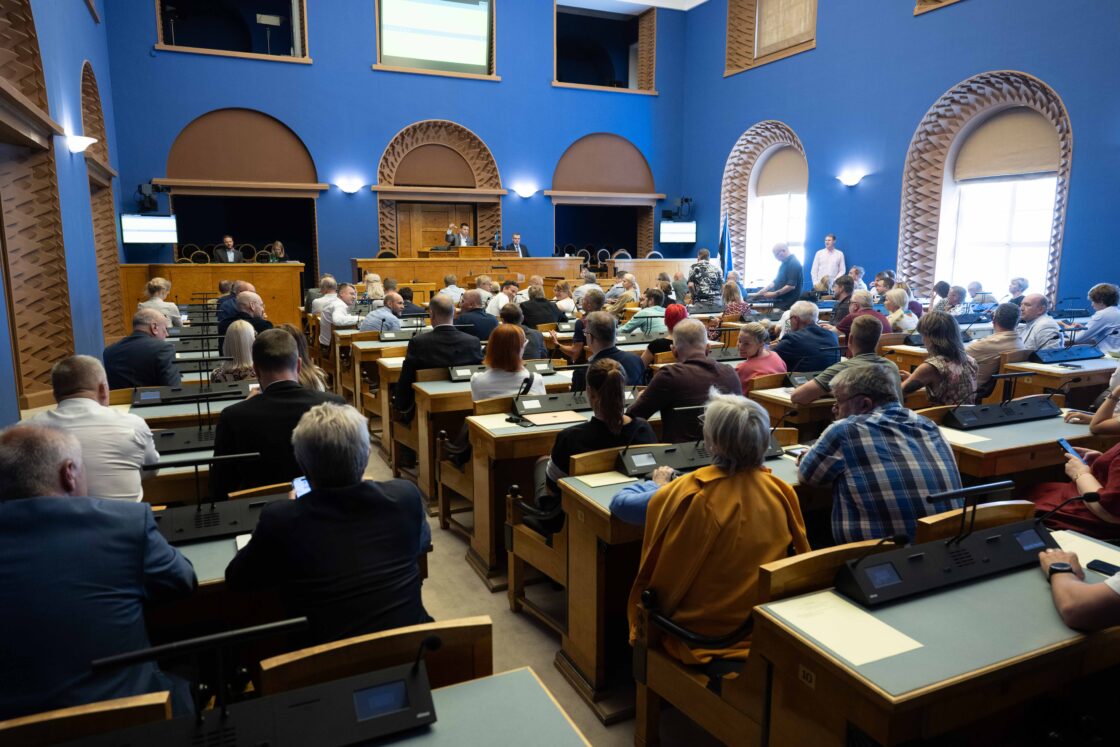The Riigikogu discussed on Thursday reviving the economy from the present crisis as a matter of great national importance, initiated by the opposition Estonian Conservative People’s Party (EKRE) group.
Jaano Haidla, chairman of the Forest and Wood Industries Association, pointed out three major topics for discussion — investment certainty, adding value to wood, and organizing industry-related data. He acknowledged the positive aspect of having a national industrial development plan but emphasized the need for a subsequent action plan and responsible parties.
Haidla mentioned that currently, there are only two people in charge of industrial matters in the Ministry of Economic Affairs and Communications, and neither of them is specifically responsible for the wood industry.
“The question is this — what is our overall industrial strategy, our strategy for the wood industry or a long-term plan or vision for the direction in which this industry should head?” he said.
According to Haidla, Estonia has reached a stage where 30 percent of forests are protected, and 70 percent are under economic management.
“As an industry, it’s hard for us to understand whether in the future the proportion will be 30 percent of forests under economic management with 70 percent protected, as it seems to be heading in that direction. If we want to maintain the wood industry, it must have input, and that input comes from our own forests,” he added.
Chairman of the EKRE group Martin Helme said that one of the aims of the debate was to map out the problems in the Estonian economy and find ways to recover from them. Helme highlighted that Estonia has not had a normal economic policy for many years.
“Compared to the situation in 2019, Estonia has faced the most severe inflation in Europe. We have lost about one-third of our purchasing power or the purchasing power of money during this time,” he said.
Helme highlighted low productivity as a major issue, noting that even though there are sectors with high productivity that contribute significantly to tax revenue and export income, they are currently under extreme pressure. He called for addressing the broader macroeconomic picture, which is characterized by low productivity.
Additionally, Helme pointed out the decline in the competitiveness of Estonian business and economy in recent years, and the issue of low and declining purchasing power among the population.
“This affects both the big economic picture and every single person individually, meaning that people have actually become poorer, regardless of whether their salaries or pensions have increased,” he added.
Member of the EKRE group Rain Epler spoke about energy and what Estonia could and should do looking forward. He highlighted the influence of the socio-political atmosphere on the energy debate, criticizing the prevailing green ideology in Western countries. Epler argued that regardless of the future vision, whether it is based on offshore wind, oil shale, or nuclear energy, it must be honestly acknowledged that for the next 10–15 years, Estonia has no other practically viable solution than to rely on energy produced from oil shale.
Source: BNS
(Reproduction of BNS information in mass media and other websites without written consent of BNS is prohibited.)


















